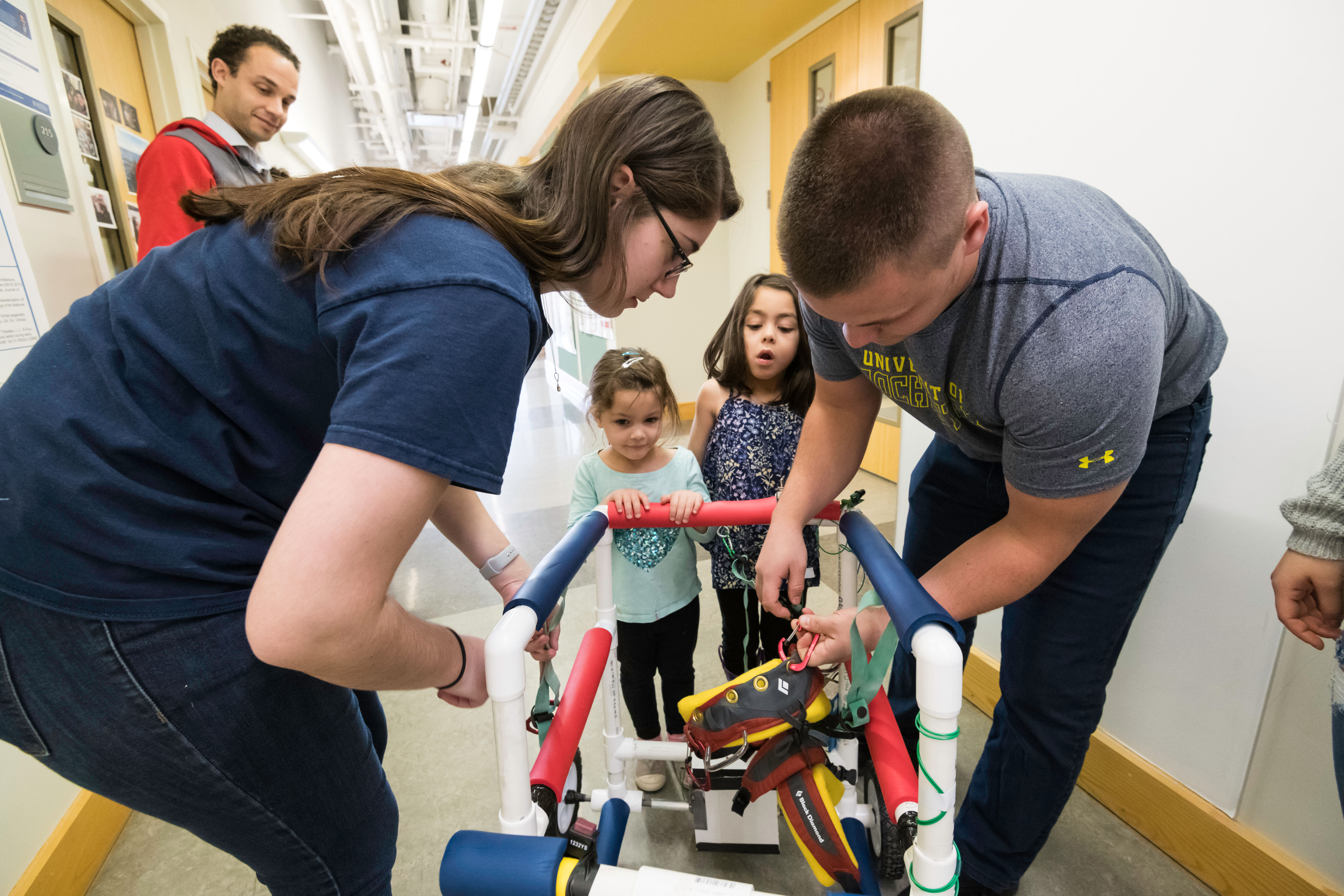Senior Design
Our Senior Design program gives students practical experience in designing and prototyping medical devices and research instruments using a customer-driven, problem-orientated approach.
This program spans two semesters (BME 295/296) and starts with students benchmarking and analyzing existing medical devices. Then, for the remainder of the year, they work in teams to solve problems posed by Rochester faculty members, clinicians from our medical center, local community members, or industry partners.
In solving these problems, students:
- Generate a formal design proposal
- Participate in formal design reviews
- Develop physical prototypes
- Test their devices
They also provide extensive reports to document the results of testing and offer considerations for further implementation. Course milestone events and assignments align with quality systems practices, preparing our students for industry.
All design teams are expected to thoroughly consider many realistic constraints, including ethical, economic, manufacturing, social, and regulatory issues. BME seniors work directly with the graduate students in our Center for Medical Technology and Innovation (CMTI) program, and each student team is supervised by biomedical engineering faculty, who provide both technical and project management guidance.
At the end of the academic year, teams present their research at the annual Senior Design Day.

